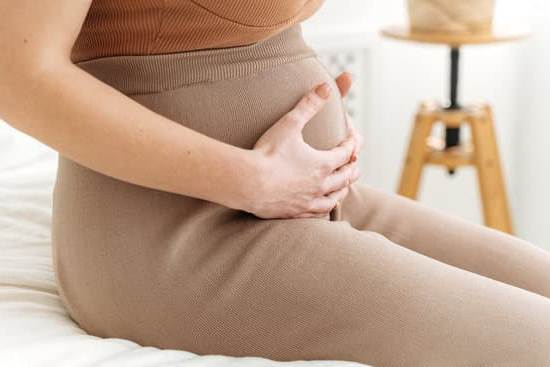Are you trying to conceive and wondering how early can you detect pregnancy? Understanding the signs and symptoms of early pregnancy is essential for those who are actively trying to become pregnant.
From the moment of conception, a woman’s body undergoes various changes, some of which can be detected even before a missed period. This article will explore how early pregnancy can be detected, focusing on important factors such as the menstrual cycle, ovulation, pregnancy tests, and early signs to look out for.
Understanding the menstrual cycle and ovulation is crucial in determining the best time to take a pregnancy test. Ovulation typically occurs around 14 days before the start of your next period. This means that if you have a regular 28-day cycle, you are likely to ovulate around day 14. If an egg is fertilized during this time, it will implant into the lining of the uterus, leading to pregnancy.
Pregnancy tests work by detecting levels of human chorionic gonadotropin (hCG) hormone in urine or blood. Home pregnancy tests are convenient and easy to use, while blood tests performed at a doctor’s office offer more accurate results.
Knowing how early can you detect pregnancy with different types of pregnancy tests is important in getting an accurate result. Stay tuned as we delve deeper into understanding the factors that can affect the accuracy of these tests and when it’s best to consult a doctor if you suspect you may be pregnant.
Understanding the Menstrual Cycle and Ovulation
Menstrual Cycle
The menstrual cycle is the regular natural change that occurs in the female reproductive system. This cycle is necessary for reproduction and involves several phases, including menstruation, follicular phase, ovulation, and luteal phase. Understanding the menstrual cycle is crucial in determining when conception may have occurred.
Ovulation
Ovulation is the process in which a mature egg is released from the ovary, ready to be fertilized by sperm. This usually occurs around halfway through your menstrual cycle. Understanding when you ovulate can help determine how early you can detect pregnancy, as conception can only occur if there is an egg present.
How Early Can You Detect Pregnancy Based on Ovulation?
The timing of when you can detect pregnancy largely depends on when ovulation occurred and when the fertilized egg implants in the uterus. Typically, it takes about 6-12 days after ovulation for implantation to occur, followed by another few days for hCG (human chorionic gonadotropin) levels to rise enough to be detected by pregnancy tests.
Understanding your menstrual cycle and tracking ovulation can give you an idea of how early you can detect pregnancy. For example, if you have a regular 28-day cycle and ovulate around day 14, you may be able to get a positive pregnancy test as early as 8-10 days past ovulation with a sensitive home pregnancy test.
How Pregnancy Tests Work and When to Take Them
Pregnancy tests work by detecting the presence of a hormone called human chorionic gonadotropin (hCG) in the urine or blood. This hormone is produced by the placenta shortly after a fertilized egg attaches to the uterine lining. Home pregnancy tests are designed to detect hCG in the urine, while blood tests conducted at a doctor’s office can measure the level of hCG in the blood.
When to take a pregnancy test depends on various factors such as the length of your menstrual cycle and when you ovulate. For most women, it is recommended to wait until after your missed period to take a home pregnancy test for more accurate results.
However, there are early detection pregnancy tests available that claim to provide results up to 6 days before your missed period. It is important to follow the instructions carefully and be aware that taking a test too early may result in a false negative.
Here are some guidelines for when to take a home pregnancy test:
- If you have a regular 28-day menstrual cycle: Wait until the first day of your missed period
- If you have an irregular cycle: Wait at least two weeks after having unprotected intercourse
- If you suspect you may be pregnant but get a negative result: Wait a few more days and retest, or consult with your doctor for further guidance.
The Difference Between Home Pregnancy Tests and Blood Tests
When it comes to detecting pregnancy, there are two main types of tests that can be conducted: home pregnancy tests and blood tests. Each type of test has its own advantages and disadvantages, and it’s important to understand the differences between the two.
Home Pregnancy Tests
Home pregnancy tests are convenient and easy to use. They work by detecting the presence of human chorionic gonadotropin (hCG) in the urine, which is a hormone that is produced during pregnancy. These tests can typically be taken at home, and they are readily available at most drug stores. Most home pregnancy tests claim to be able to detect pregnancy as early as the first day of a missed period, although some may be able to detect hCG even earlier.
One key advantage of home pregnancy tests is that they are affordable and accessible. However, it’s important to follow the instructions carefully and to wait until the appropriate time in your menstrual cycle to take the test for accurate results.
Blood Tests
Blood tests for pregnancy are typically conducted at a doctor’s office or clinic. These tests measure the levels of hCG in the blood, providing a more accurate result than a home pregnancy test. There are two types of blood tests that can determine if you’re pregnant: quantitative hCG testing, which measures the exact amount of hCG in your blood, and qualitative hCG testing, which simply confirms whether or not hCG is present.
One disadvantage of blood tests is that they are more invasive and generally more expensive than home pregnancy tests. However, they can detect pregnancy much earlier than a home pregnancy test – as early as 6-8 days after ovulation. Additionally, blood tests can also provide valuable information about the health of your pregnancy by measuring how quickly hCG levels are rising.
Ultimately, whether you choose a home pregnancy test or a blood test depends on your individual circumstances and needs. It’s always best to consult with your healthcare provider if you suspect you may be pregnant to ensure you get an accurate result.
Early Signs of Pregnancy to Look Out For
When it comes to understanding the signs and symptoms of early pregnancy, it is important to be aware of the various indicators that could point towards a possible pregnancy. One of the earliest signs is a missed period, which can prompt many women to suspect they may be pregnant. However, there are other lesser-known symptoms such as breast tenderness, fatigue, nausea, and frequent urination that can also serve as indicators of early pregnancy.
Understanding the menstrual cycle and ovulation is crucial when trying to determine how early you can detect pregnancy. Ovulation typically occurs around 14 days before a woman’s next period, so if fertilization takes place during this time frame, then early pregnancy could be detected shortly after a missed period.
Pregnancy tests work by detecting the presence of human chorionic gonadotropin (hCG) in urine or blood. This hormone is produced once a fertilized egg implants in the uterine lining and its levels increase rapidly in the early stages of pregnancy.
There are different types of pregnancy tests available on the market – urine-based home pregnancy tests and blood tests administered by healthcare professionals. Home pregnancy tests are convenient, affordable, and easy to use while blood tests are more accurate and can detect lower levels of hCG much earlier in the pregnancy. It is important to consider these factors when deciding how early you want to take a test to detect a potential pregnancy.
| Early Signs of Pregnancy | More Information |
|---|---|
| Missed Period | This is one of the most common and noticeable signs that may prompt a woman to suspect she might be pregnant. |
| Breast Tenderness | The hormonal changes in early pregnancy can cause tenderness or discomfort in the breasts. |
| Nausea | Many women experience morning sickness, which can occur at any time of day during early pregnancy. |
How Early Can You Detect Pregnancy With Different Types of Pregnancy Tests
When it comes to detecting pregnancy, many women want to know exactly how early they can find out if they are pregnant. Different types of pregnancy tests can detect the presence of the hormone hCG at different times, giving women the opportunity to find out as soon as possible.
Home pregnancy tests are readily available over-the-counter at most drugstores and can detect hCG in urine. These tests can typically detect pregnancy about a week after a missed period, but some claim to be able to detect hCG even earlier.
On the other hand, blood tests conducted by a healthcare professional can detect lower levels of hCG much earlier than home pregnancy tests. These blood tests, known as quantitative hCG blood tests, can detect pregnancy as early as 6-8 days after ovulation. Additionally, qualitative hCG blood tests, which are also performed by a healthcare professional but measure for just the presence of hCG without quantifying it, can detect pregnancy around 7-12 days after ovulation.
It’s important to note that while these tests may be able to detect pregnancy very early on, the accuracy of the results can vary based on factors such as how well you follow the instructions for the test and when you take it relative to your menstrual cycle. Factors like these could affect when and how early you can detect pregnancy with different types of pregnancy tests.
| Type of Pregnancy Test | Earliest Detection Time |
|---|---|
| Home Pregnancy Test | About a week after missed period (some claim earlier) |
| Quantitative hCG Blood Test | Around 6-8 days after ovulation |
| Qualitative hCG Blood Test | Around 7-12 days after ovulation |
Factors That Can Affect the Accuracy of Early Pregnancy Tests
There are several factors that can impact the accuracy of early pregnancy tests. It’s important to be aware of these factors so that you can understand the possible results of a pregnancy test and know when to take another test for accurate results. Here are some key factors to consider:
- Timing: One important factor that can affect the accuracy of early pregnancy tests is timing. Taking a test too early after conception may not detect the levels of hCG (human chorionic gonadotropin) in your urine, which is an early sign of pregnancy. It’s recommended to wait until at least a week after your missed period to take a home pregnancy test for the most accurate results.
- Medications: Certain medications, such as fertility drugs or medications that contain hCG, can affect the results of a pregnancy test. It’s important to consult with your healthcare provider about any medications you are taking before taking a pregnancy test.
- Diluted urine: Using diluted urine or not following the instructions properly for taking a home pregnancy test can also impact its accuracy. It’s best to use concentrated first-morning urine when taking a home pregnancy test for more reliable results.
Understanding these factors is crucial in determining how early you can detect pregnancy with different types of pregnancy tests. By being knowledgeable about these factors, you can ensure that you are taking a pregnancy test at the right time and under the right conditions for accurate results.
In addition, it’s important to keep in mind that every woman’s body is different, and individual factors such as hormone levels and health conditions can also play a role in the accuracy of early pregnancy tests. If you suspect you may be pregnant but receive a negative result on a home pregnancy test, it is advised to consult with your healthcare provider for further evaluation and possibly a blood test to confirm or rule out pregnancy.
Conclusion
In conclusion, understanding the signs and symptoms of early pregnancy is important for women who are trying to conceive or who may not be planning a pregnancy. It is essential to be aware of the various indicators of early pregnancy, including changes in the menstrual cycle, ovulation, and potential implantation bleeding. Recognizing these signs can prompt women to consider taking a pregnancy test and seeking medical advice if necessary.
Pregnancy tests are commonly used as an initial method of confirming pregnancy at home, with various types available on the market. Home pregnancy tests typically detect the presence of human chorionic gonadotropin (hCG) in urine, while blood tests can measure hCG levels more accurately and detect pregnancy earlier than home tests. Understanding how these tests work and when to take them can help women determine their results’ reliability and whether further testing or consultation with a healthcare provider is necessary.
Factors such as improper use of pregnancy tests, expiration dates, medications, and health conditions can affect the accuracy of early pregnancy test results. Therefore, it is important for women to carefully follow the instructions provided with the test kit and consider consulting a doctor if they suspect they may be pregnant but receive a negative result.
Seeking medical advice early in suspected pregnancies can ensure proper prenatal care for both mother and baby, promoting a healthy outcome for all involved. Ultimately, knowing how early you can detect pregnancy allows individuals to make informed decisions about their reproductive health while ensuring proper medical care from the earliest possible stages of pregnancy.
Frequently Asked Questions
How Soon Will a Pregnancy Test Read Positive?
A pregnancy test can read positive as early as 10 days after conception, but for more accurate results, it’s best to wait until the first day of a missed period. Some highly sensitive tests may be able to detect pregnancy even earlier.
Can You Detect Pregnancy at 1 Week?
It is possible to detect pregnancy at 1 week after conception, but it’s not common. At this early stage, the levels of hCG (the pregnancy hormone) may not be high enough to be detected by most home pregnancy tests.
How Early in Pregnancy Can You Test Positive?
Most home pregnancy tests can provide accurate results as early as the first day of a missed period. However, some highly sensitive tests claim to be able to detect hCG in urine as early as 6-8 days after ovulation, which is typically about a week before a missed period.

Welcome to my fertility blog. This is a space where I will be sharing my experiences as I navigate through the world of fertility treatments, as well as provide information and resources about fertility and pregnancy.





